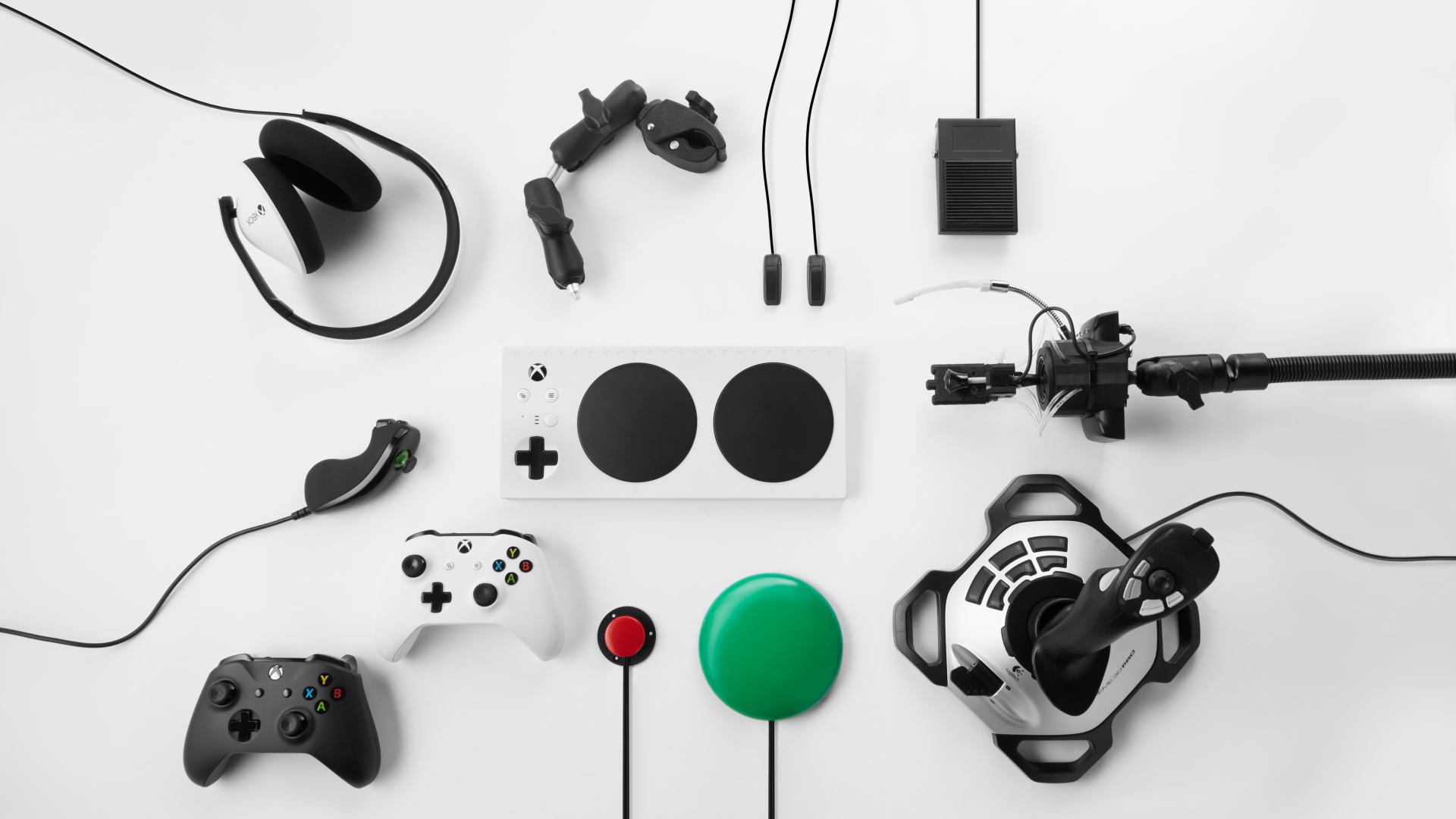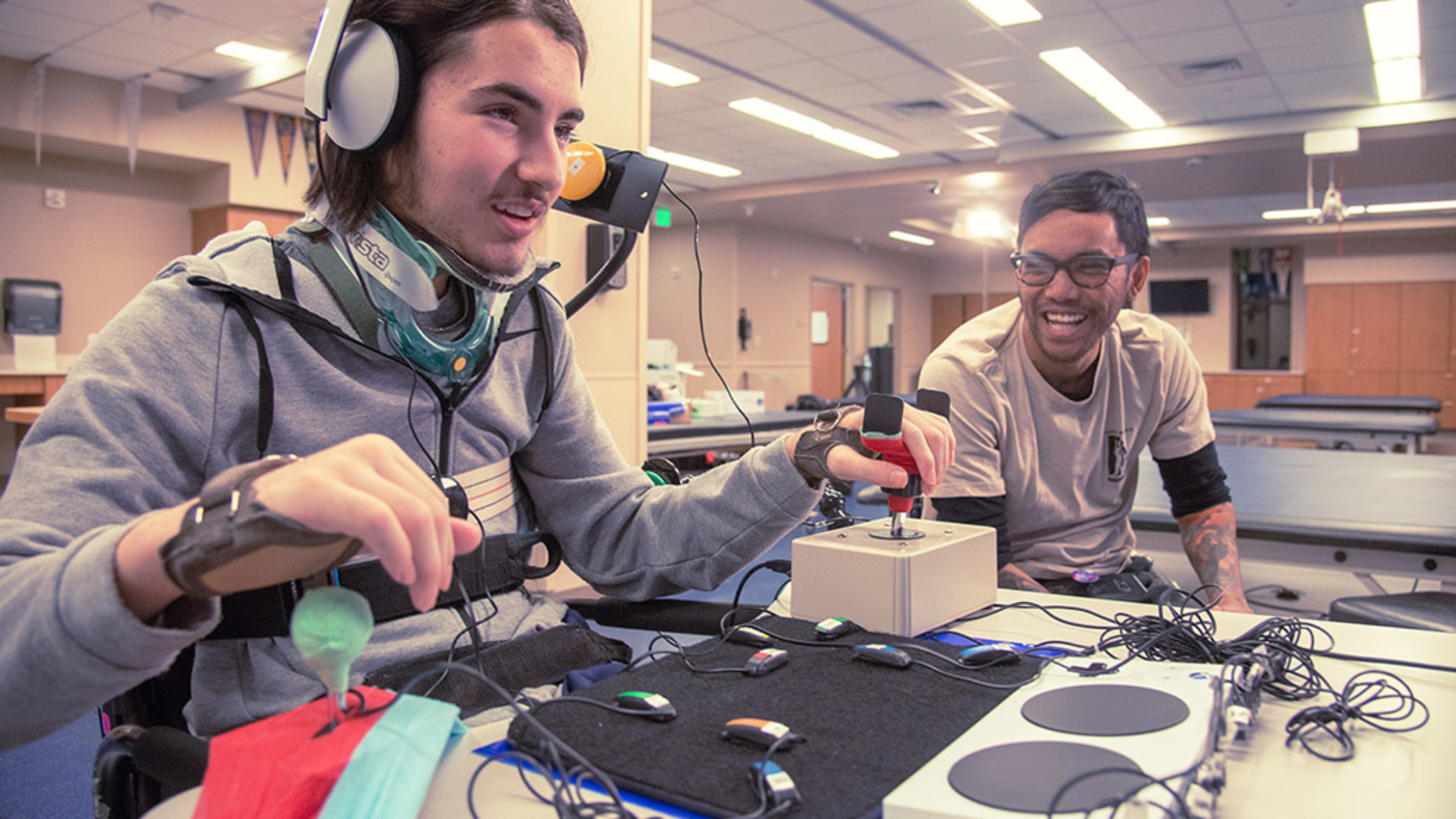Digital Diversity: Getting Disabled Players Back In The Game
Special Effect and Xbox are giving everyone control.

I’m prepared to admit that for all my calls for diversity, I don’t always remember representation of the disabled Community. Since its release I’ve praised Dream Daddy for its great diversity, representing the trans community and people of various races. Yet there isn’t a single confirmed disabled character. It may have taken The Sims until its fourth instalment to acknowledge the existence of non-binary people, which is disgraceful, but they’ve yet to acknowledge any of the great range of disabilities people can experience.
At least 15% of the world’s population has some kind of disability, be it physical or mental, visible or otherwise. Yet there are hardly any playable characters with non-standard ability. More often than not, disabilities are used as some kind of tragic backstory for a character, or in sci-fi games to token a character with specific skillsets.
But let’s take this issue right back to square one. I don’t want to write about how few disabled characters there are in games, although I easily could. Perhaps the biggest issue the differently abled community have to overcome is simply playing video games.

I’m sure we’ve all heard about the “plastic straw” controversy and how it has affected members of the disabled community (along with the infamous photograph of Starbucks environmental paper straws in plastic wrapping). If you have avoided it stop and have a quick google. But the situation shows how easy it can be to dismiss the needs of disabled people, without even realising it.
Before researching for this article I’ll admit that I never picked up a controller and wondered how it would cause someone a problem. But perhaps its something everyone should do.
To get a better idea of the issue at hand, I contacted the UK Charity Special Effect. This is a charity that designs controllers specifically for people with disabilities that limit their ability to play games. I was put in touch with Mark Saville who works in Special Effect’s communications, who answered a few questions for me.

TIGW: Firstly, what sort of disabilities limit someone’s abilities to play games?
Mark Saville: We help people with physical disabilities to enjoy games, and that covers a huge range of conditions and injuries: missing or damaged fingers/limbs, arthritis, spinal injuries, cerebral palsy, combat injuries and muscular dystrophy to name but few. In practice, this means we’re getting enquiries from people who might, for example, require some advice about what one-handed controller would be best for the games they want to play, to people with advanced muscular dystrophy with hardly any movement in their body.
TIGW: What are the most common modifications your organisation applies to controllers?
Mark Saville: Every person we see has different abilities, so every setup we create is customised exactly to their abilities and the demands of the games they want to play. For someone with complex physical disabilities, our specialist teams of occupational therapists will look to provide joystick access initially as that will open up access to many games, then they’ll work to find ways that the buttons on a controller/keyboard can be mapped out to various parts of the body they can control via switches. We also use voice and eye control where appropriate. A common modification that we make to controllers, for example, is to replace the stick springs with lighter ones, making them easier to use.
TIGW: Do you think the AAA gaming companies should be making more of an effort to produce these controllers?
Mark Saville: It was great to be able to contribute to the design and testing of Microsoft’s new XAC (Xbox Adaptability Controller), We really like the way this product continues the work done with the Copilot feature on Xbox which allows you to combine controllers to control one player in-game. Being able to potentially create wireless controller setups with different profiles will also be great for many users. The flexibility of the controller, such as being able to map switches to joystick directions, will give people the opportunity to create interesting personal ways of playing.
Microsoft becoming involved in this field, to this degree, feels like a great step forward for accessible gaming. The awareness raised as a result has helped to bring accessibility to the forefront of gaming and we’re looking forward to how this will manifest itself in the future.
Triple-A Responsibilities
As Mark discusses in his final answer, Microsoft recently stepped up to this issue and released a controller specifically designed for the disabled community. The Xbox Adaptability Controller has two large programmable buttons, that players can rest one hand between and access both easily, along with foot pedals and other attachments that the user can add to help their gaming experience. Compare this controller to a normal Xbox one controller, that has multiple small buttons and functions reliant on the gamers ability to grip and move their fingers smoothly, and you’ll quickly see how far we need to go to make games accessible to all.
As much as I adore indie games, one can’t deny that this the issue of hardware is entirely in AAA’s corner. Indie companies don’t have the money or resources to build something like the XAC. That’s not to say indie developers can rest, however. Developing games with the scope of control input to handle specialist controllers such as the XAC will be incremental to the future of digital diversity in all its forms and is something many indie developers can implement today.

The XAC at time of writing costs $100. That may be expensive compared to a normal Xbox One controller, but much cheaper than having to pay for a tailor-made one. Special Effect creates their controllers without charge, but they can’t help every gamer.
One of the reasons game consoles haven’t introduced more accessible controllers may be because, as Mark said, there are so many disabilities that could affect your ability to use a normal controller. Creating something that literally everyone can use is a tall order. But as with the plastic straws- just because something seems better for the majority (aka less wasted plastic) doesn’t mean we can dismiss the needs of others. Some people need these controllers and it’s certainly something gaming companies should be making more of an effort to bring in.
Thank You Special Effect
Thanks to Mark Saville for answering my questions and for his input in this piece. More information on them (and to make donations) can be found on the Special Effect website. You can also check out more information on the Xbox Adaptability Controller.
Digital Diversity is a series of features exploring diversity in indie games – and how games, in general, can do more. You can read the full series here.
